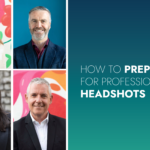Ruth Drury Byrne is a videographer and producer at Zahra Media Group. She understands the importance of pre-production and breaks it down in this blog post.
When it comes time to make a video, there is much that needs to happen before the camera even begins filming. Pre-production is the most important stage in the production of a video. The time and money invested here will be worth it to ensure a smooth and successfully planned video.
What exactly is pre-production?
Pre-production is everything up to the day of the shoot. It begins as soon as the decision to make a video is agreed. Below are 12 important steps to keep in mind before you start filming…

1. Determine your goals. The first step in Production is to decide what it is that needs to be achieved from the video. Is it to educate, build brand trust or simply entertain? Who is the target audience and where and when is it going to air? What do you want the viewer to do after watching the video? Once the objective is agreed, then a creative script can be created with that in mind.
2. Figure out your budget. Agree on the budget as this will impact the type of video that can be created. You don’t need a huge budget these days to create a professional-looking video, but it’s better to go into planning with an idea of what you’re willing to spend.
3. Create a script. A good script will get the message across quickly and also make you aware of what titles and call to actions you would like to include. Invest in this area as it will make all the following production stages run much smoother.

4. Pick a director. Once the script is approved, decide what videographer or director would suit this script. Research other videos where you like the style and ask for samples of work to see if this director will bring your vision to life. It’s also a good idea to ask the director to do up a storyboard so that you can see if they are understanding your brief.
5. Build the schedule. Do up a schedule and work back from the live date. This is one of the most important steps as each part of shooting the video will take longer than you originally anticipate. You don’t want to miss any deadlines because you haven’t given yourself enough time.
6. Book the shoot day. Agree on a shoot day that allows enough time for the pre-production and also enough time for editing and changes in the post stage. Time management is key and there will be many moving pieces.
7. Plan, plan, plan. Dissect the script in detail, talk to the Director and take notes of everything. Who needs to be involved with the shoot? Is casting required? What locations are involved and are there any tricky props that need to be acquired? For example, if you want to shoot in a public place, permission needs to be sought from the local council and this may take a bit of time. This time needs to be built into the schedule.

8. Make up a shot list. This should be created with the director. By doing this you will be able to estimate how many shots you will be able to achieve in the time you have.
9. Conduct regular pre-production meetings. Have regular pre-production meetings or catch-ups with the client and director so that the client can be fully up to speed on where things are at with the production. These meetings are valuable both for the client and the director, and ensure that everyone is on the same page.
10. Scout locations. You’ll want to research the location before filming to check for lighting, sound and set up of equipment. The last thing you want is to go film and then realise that there is construction taking place across the street.
11. Prepare the cast. If a cast involved, they need to receive the script well in advance. It’s always good for the director to meet up with the cast a few days in advance to discuss the shoot and how he visualises the script and their part in it.
12. Organise call sheets. These are used to ensure everyone working on the shoot knows where to be and when. It gives the contacts for the location of the shoot, directions and start times for the crew and also times for the client to arrive.
If all of the above points have been covered and well-organised, the shoot will go smoothly. However, it’s important you make sure to think of all possible consequences, especially if you are shooting outside and/or dealing with cast.
We at Zahra are aware of all that is involved in the pre-production stage of a project and encourage our clients to also be as involved as possible. If you are interested in doing some video, contact the Zahra production team who are happy to help you with any stage.

















